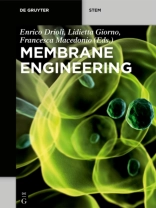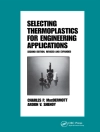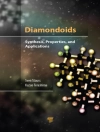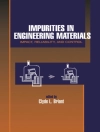Modern membrane science and technology aids engineers in developing and designing more efficient and environmentally-friendly processes. The optimal material and membrane selection as well as applications in the many involved industries are provided. This work is the ideal introduction for engineers working in membrane science and applications (wastewater, desalination, adsorption, and catalysis), process engineers in separation science, biologists and biochemists, environmental scientists, and most of all students. Its multidisciplinary approach also stimulates thinking of hybrid technologies for current and future life-saving applications (artificial organs, drug delivery).
Table des matières
Fundamentals
Pronciples of Membrane Separation Processes
Membrane Separation Process Design and Operation
Concentration Polarization and Membrane Modules
Membrane Preparation and Characterization
Membranes and Membrane Processes Applications
– In Water Treatment (Desalination, Indistrial Water, Wastewater Treatment)
– Chemical industry (Gas Separation, Solvent Separation, Recovery of Chemical and ollutants from Water and Wastewater Fuel Cells and Energy Storage Systems)
– Food and Beverage Industry (Milk and dairy, Fruit, Citrus and Vegetal Juices, Alcoholic Beverages)
– Pharmaceutical and Biotechnology Industry ( Pharmaceuticals from Cell Cultures, Optically Pure Enantiomers, Antibiortics, Membranes in Proteomiocs, Virus Removal)
– Biomedical Applicatioons (Hemodializer, Bioartificial Kidney, Bioartificial Liver, Artificial Liver, Artificial Lung, Immunoisolation of Drug Producing Cell Tissues, Membranes in regenerative Biology and Medicine)
– Analytical and Diagnostic Applications (Microbiologal and Mammalian Cell Assay, Biochemistry and Molecular Biology Assay, Pharmaceutical and Medical Care)
A propos de l’auteur
Enrico Drioli and Lidietta Giorno, University of Calabria, Rende, Italy; Francesca Macedonio, National Research Council, Rende, Italy.












